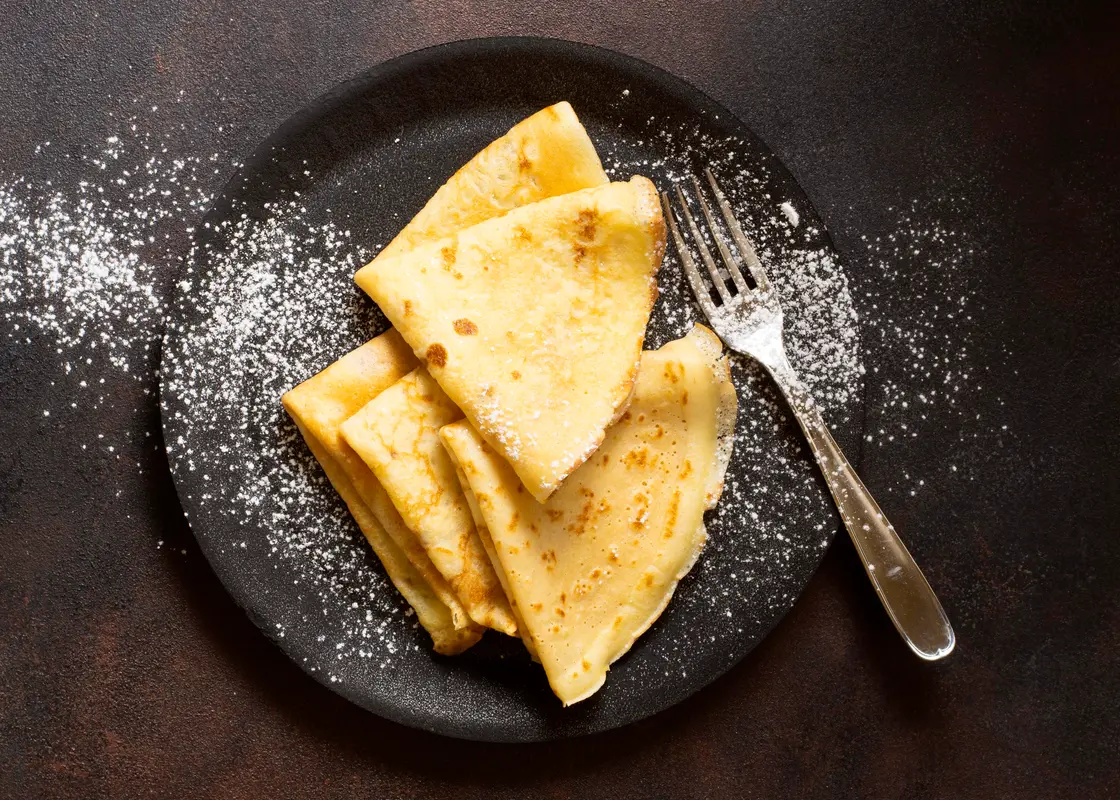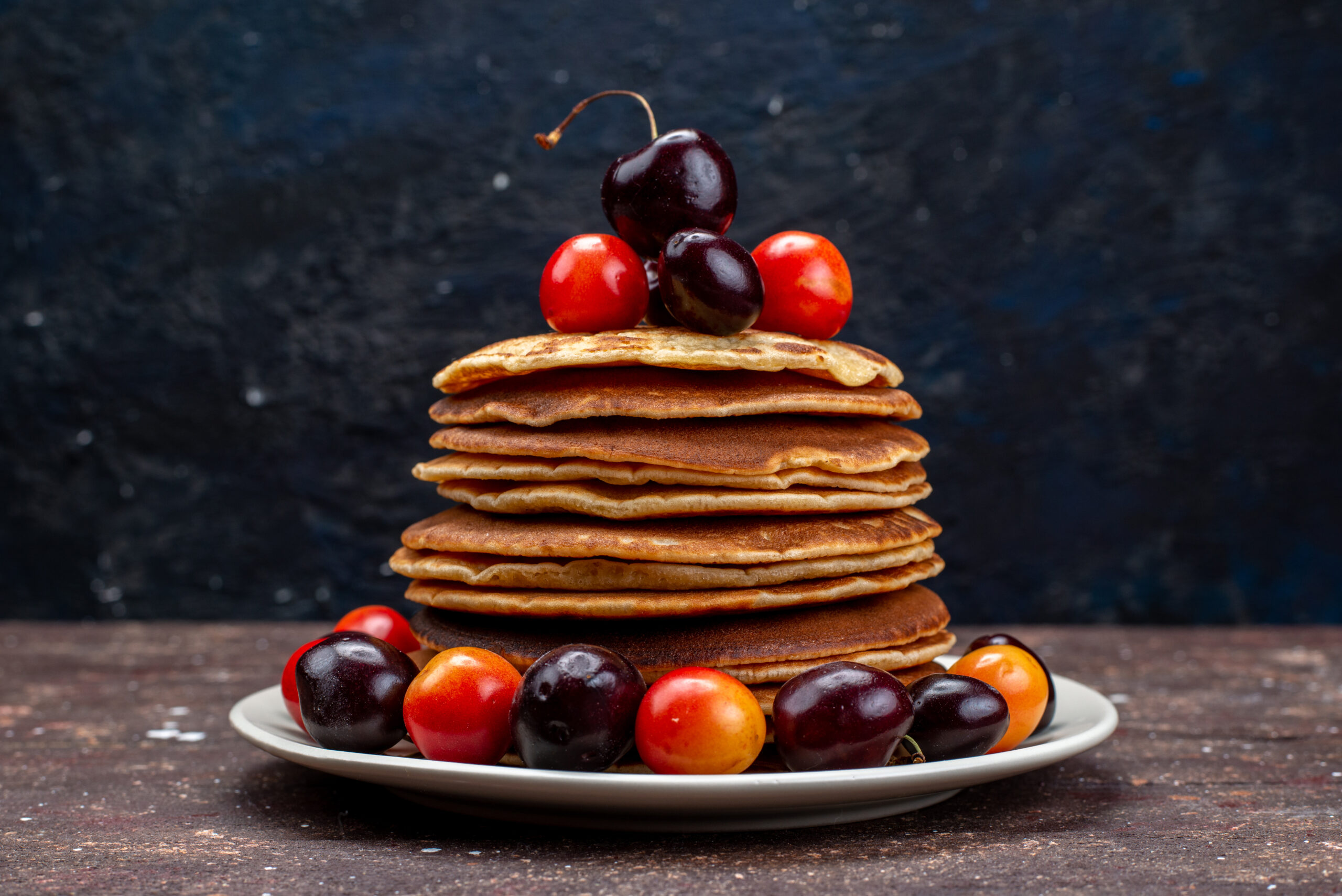Pancakes are a beloved breakfast staple, but for those with gluten intolerance or celiac disease, enjoying traditional pancakes can pose a problem. Thankfully, gluten-free pancakes provide a delicious alternative that everyone can enjoy. This comprehensive guide delves into what gluten-free pancakes are made of, exploring ingredient options, recipes, variations, and expert tips to help you create perfect gluten-free pancakes at home.
Why Choose Gluten-Free Pancakes?
For individuals with celiac disease or a sensitivity to gluten, consuming even small amounts of gluten can lead to serious health issues. Gluten is a protein found in wheat, barley, and rye that can cause inflammation and damage to the small intestine in susceptible individuals. This makes following a gluten-free diet essential for managing their health and well-being.
Opting for gluten-free pancakes doesn’t mean sacrificing flavor or texture. With the right ingredients and techniques, gluten-free pancakes can be just as light, fluffy, and delicious as their traditional counterparts. If you’re interested in more low-carb and healthy meal options, check out our delicious and easy low-carb ground turkey recipes for more ideas.
Common Ingredients in Gluten-Free Pancakes
Moreover, creating the perfect gluten-free pancake requires selecting the right ingredients that provide the desired texture and flavor while avoiding gluten.
- Gluten-free flour blends: These blends typically combine rice flour, potato starch, and tapioca flour to mimic the properties of wheat flour. Popular brands like Bob’s Red Mill offer specialized gluten-free flour blends that are widely used for baking.
- Xanthan gum or guar gum: These are used as binding agents to provide the elasticity and structure that gluten normally offers. They help prevent gluten-free pancakes from crumbling or falling apart.
- Dairy-free milk alternatives: Almond milk, coconut milk, or cashew milk can replace traditional dairy milk, offering both moisture and a slight flavor variation.
- Egg substitutes: For a vegan option, ingredients like flax eggs (a mixture of ground flaxseed and water) or commercial egg replacers can be used to bind the ingredients and help the pancakes rise.
For more details on the various types of gluten-free flours and their uses, refer to our guide on the best gluten-free flours to ensure your pancakes turn out perfectly.
Basic Gluten-Free Pancake Recipe
This basic gluten-free pancake recipe is easy to follow and can be customized to fit different dietary preferences. Here’s how to make delicious gluten-free pancakes:
Ingredients
- 1 cup gluten-free flour (such as Bob’s Red Mill 1:1 Gluten-Free Flour Blend)
- 1/4 teaspoon xanthan gum (if not already included in your flour blend)
- 1 tablespoon gluten-free baking powder
- 1/4 teaspoon salt
- 2 tablespoons granulated sugar
- 2 tablespoons vegetable oil or melted butter
- 1 egg (or an egg replacer for a vegan option)
- 1 teaspoon pure vanilla extract
- 3/4 cup milk (use almond milk or another dairy-free alternative)
Instructions
- In a large mixing bowl, whisk together the egg (or egg replacer), sugar, vanilla extract, and oil.
- Add the gluten-free flour, xanthan gum, baking powder, and salt. Stir until the mixture is well combined.
- Slowly pour in the milk, mixing until the batter is smooth. If the batter is too thick, add a bit more milk until you achieve the desired consistency.
- Heat a greased griddle or nonstick frying pan over medium heat. Scoop about 1/4 cup of batter for each pancake and pour it onto the griddle.
- Cook until bubbles form on the surface and the edges begin to set, then flip and cook until golden brown on both sides.
- Serve your pancakes warm with your favorite toppings such as butter, maple syrup, or fresh fruit.
Dairy-Free and Vegan Options
To accommodate those who follow a vegan or dairy-free diet, this gluten-free pancake recipe can adjusted:
- Substitute regular milk with almond milk, coconut milk, or cashew milk.
- Replace the egg with a flax egg (1 tablespoon flaxseed meal + 3 tablespoons water) or a commercial egg replacer.
These adjustments make the recipe versatile, ensuring it fits various dietary needs without compromising on taste or texture.
Flavor Variations and Mix-ins
Gluten-free pancakes are highly versatile and can be customized to include a variety of flavors and mix-ins:
- Fruit Pancakes: Stir in fresh or frozen blueberries, bananas, or raspberries for a burst of fruity flavor.
- Chocolate Lovers: Add chocolate chips or a tablespoon of cocoa powder to the batter for a rich, chocolatey taste.
- Savory Twist: Incorporate cooked, crumbled bacon or shredded cheese into the batter for a savory pancake option.
Experimenting with different ingredients can keep breakfast exciting and cater to various tastes. For more ideas on savory and low-carb meal options, explore our low-carb ground beef recipes to diversify your meal planning.
Tips for Perfect Gluten-Free Pancakes
Creating perfect gluten-free pancakes is simple with a few key tips:
- Rest the Batter: Letting the batter sit for 5-15 minutes before cooking allows the ingredients to fully absorb the liquid, resulting in a better texture.
- Use a Hot, Greased Griddle: Cooking pancakes on a hot, well-greased griddle prevents sticking and ensures even cooking. A temperature of around 350°F is ideal.
- Flip Gently: Wait until bubbles form and the edges look set before flipping the pancake. Use a large spatula for easy flipping.
Following these tips will help you achieve the ideal pancake texture—light, fluffy, and golden brown. For additional tips on making the perfect pancakes, visit our guide on making perfect gluten-free pancakes.
Nutritional Considerations and Storage
Nutritional Profile
On average, each pancake made with this gluten-free pancake recipe contains:
- Calories: 150 kcal
- Carbohydrates: 16g
- Protein: 6g
- Fat: 7g
These pancakes are relatively low in calories, making them a great option for a balanced breakfast. To keep them healthy, consider topping them with fresh fruits, nuts, or a dollop of Greek yogurt instead of sugary syrups.
Freezing and Reheating Gluten-Free Pancakes
If you have leftovers or want to prepare breakfast in advance, pancakes can easily be frozen and reheated:
- Allow the pancakes to cool completely.
- Place them on a parchment-lined baking sheet and freeze for 10 minutes.
- Transfer the pancakes to a freezer-safe bag or container, separating layers with parchment paper.
To reheat, simply pop them in the microwave, toaster, or oven. For best results, reheat in the oven at 325°F for about 10 minutes. To explore more quick and healthy breakfast options, take a look at our low-carb air fryer recipes.
FAQs: Frequently Asked Questions
- What flour is best for gluten-free pancakes?
A blend of rice flour, potato starch, and tapioca flour used. Brands like Bob’s Red Mill offer reliable options. - Can gluten-free pancakes be vegan?
Yes, by using dairy-free milk and egg replacers like flax eggs, you can make vegan gluten-free pancakes. - How do I keep my pancakes from falling apart?
Use binders like xanthan gum or guar gum, and ensure the batter is properly rested before cooking. - Are gluten-free pancakes healthier than regular ones?
It depends on the ingredients. While gluten-free pancakes are necessary for those with gluten intolerance, they aren’t automatically healthier. Focus on using whole foods and healthy toppings. - How do I store gluten free pancake batter?
Store leftover batter in an airtight container in the refrigerator for up to two days. Stir before using, as ingredients may settle.
Conclusion
Gluten-free pancakes provide a delicious and safe alternative for those with gluten intolerance or dietary preferences. By understanding the right ingredients and techniques, you can enjoy a stack of fluffy pancakes that rivals any traditional recipe.So, Whether you prefer them plain, fruity, or savory, it can be tailored to suit any taste. Explore more healthy low-carb slow cooker recipes for weight loss to enhance your dietary options and maintain a balanced, healthy lifestyle.


8 thoughts on “What Are Gluten-Free Pancakes Made Of? A Comprehensive Guide”